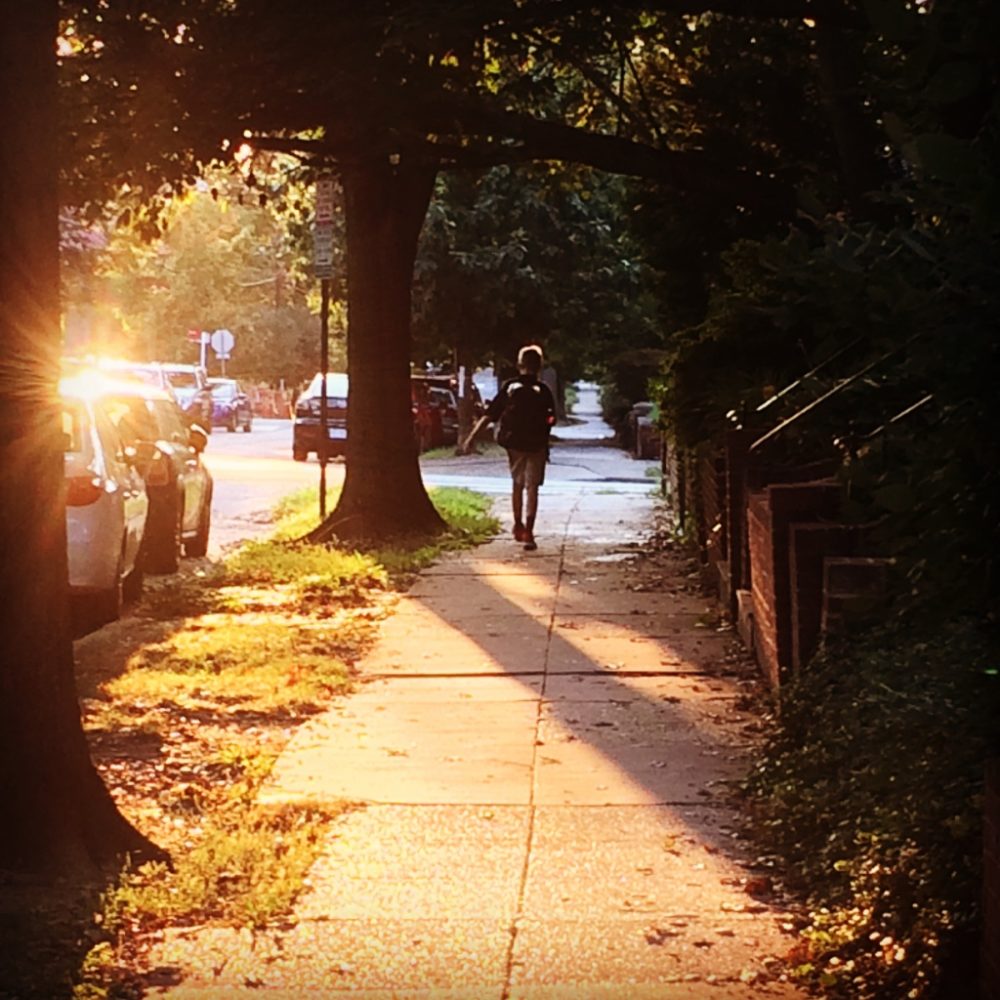
Food-allergy parents all over the U.S. are engaging in our particular back-to-school rituals: gathering signatures on forms, packaging up emergency medications (one for the nurse, one for the classroom, one for the backpack…), and stocking up on lunchbox essentials.
But what about the teachers? How are they preparing? I’d never considered it until my niece wrote to me asking for advice on behalf of a friend who is starting her first teaching job. One of her students has life-threatening food allergies (a similar list to my own kid’s allergens) and she wants to prepare. My heart just about burst with gratitude toward her.
Here’s what I wrote back:
Your friend is so thoughtful to want to learn more about how to keep her student safe. Has she talked with the parents yet? I always meet with my child’s teachers and train them on the basics, including letting them practice giving a grapefruit the Epipen. I also use that meeting as a chance to ask for accommodations, like not using food as a reward or as a prop.
I think about food allergies along 3 dimensions:
- Safety – how can she and everyone who surrounds this child make sure he is safe? Prevention and preparation for emergencies are the keys here. Field trips and parties are my nightmare since most accidents happen when you break routine.
- Inclusion – how can she make sure he feels included in every activity? Clear communication with all parents and teachers, including substitutes, about snacks, parties, and crafts is key.
- Opportunity for learning – how might she use this as an opportunity for teaching about diversity, friendship, safety, and helpfulness?
As for snacks, I never allowed my child to eat the “classroom snack” unless I had personally read the label. We would pack a snack and a lunch every day.
But if your friend needs to provide the snack every day, safe foods could include: raisins; Ritz crackers; mainstream brand pretzels (smaller manufacturers are more likely to share equipment with peanut products); mini plain bagels with cream cheese. For a treat, Oreos are a fabulous shelf-stable cookie to have in the classroom in case someone brings in surprise cupcakes. Do a lot of label reading and, when in doubt, ask questions of the food-allergy family.
I was a room parent every year so I could plan all the parties. I even would ask all the parents for their child’s birthday at the start of every year and email them a week in advance to ask what they planned to bring, to be sure it would be safe for all the kids with food allergies or other issues (such as the kid who is vegan). You’re going to think I’m crazy, but there were many times that I baked vegan cupcakes for another kid’s birthday because a family didn’t want to deal with making something from scratch. I was 100% committed to creating an inclusive, safe classroom environment for my own and every other kid.
Your friend will soon find out: People are weird about food and their kids. I now believe that there are 4 topics that should not be brought up in polite conversation: religion, politics, sex, and what you feed your child. I had people scream at me because I wouldn’t let them bring nuts into a party where nut-allergic kids would be. But guess what? All the kids felt safe and included that day.
 For the most part, the other children are awesome. I cherish a photo of the Valentines that two girls gave to my kid a few years ago. They had carefully cut out the ingredients of the candy they attached to their cards so he could check to be sure it was safe for him to eat.
For the most part, the other children are awesome. I cherish a photo of the Valentines that two girls gave to my kid a few years ago. They had carefully cut out the ingredients of the candy they attached to their cards so he could check to be sure it was safe for him to eat.
In case it’s useful, here’s a blog post I wrote about how to recognize the signs of an allergic reaction:
Food Allergy 101: Hold the blah-blah-blah
And here’s one I wrote about the annual training I do for my son’s teachers:
This whole site is excellent:
(End of email.)
Parents of kids with food allergies or special needs: What do you wish a teacher would do to prepare their classroom for your child? Are there teachers or administrators who have gone above and beyond when it comes to keeping your child safe and included?
Teachers: What are your questions? What’s on your wish list for parents and guardians, when it comes to communication about a child’s special needs? Are there parents and guardians who have done an especially good job preparing their child and his or her teachers for the new year?
Here’s my story about Jim Clay, the founding director of School for Friends, in Washington, DC:
School for Friends is a school that not only embraces diversity, but welcomes every aspect of a new family or challenging situation as an opportunity for everyone to learn, to deepen their understanding of their role in the community.
In my food-allergy (FA) support group, I’ve read many stories of schools which exclude FA kids — either by not admitting them, by outright telling parents that they cannot guarantee an FA child’s safety, or by refusing to accommodate a family’s requests for safety measures. Jim took the opposite tack. As soon as he found out that my child had FA, he called a meeting of all the teachers and we conducted in-depth training on not only the safety issues, but the social issues of FA. He then publicized the new policies to all parents, letting it be known that FA was something we as a school community would embrace.
Most parents followed the new rules without complaint. A handful did not. They complained. They asked why they couldn’t bring XYZ food. Jim was unswerving, as were the teachers. And I felt their embrace. I tasted what it would be like to live in a world where differences were celebrated. I now had a mental model for a school environment that was truly safe, that truly had my child’s — every child’s — best interests at heart. It strengthened my resolve when I later encountered school administrators and teachers who did not know how to create such an environment. I could tell them what it looked like, how we could achieve it, because I had seen it, not just in my minds-eye, but in practice, under Jim’s leadership.
Please share your stories and questions in the comments. I’d love to provide this new teacher with some inspiring stories!
Photo credits: Susannah Fox (added at my kid’s behest because “that looks like a stock photo”)
Amazing post Susannah and much appreciated. My son with severe food allergies just started kindergarten and it’s the first time he’s not in a protected pre-school environment where they can monitor his allergies in a more intimate way. A very emotional process to say the least but also an opportunity for me to educate the school in a way that hasn’t been done before. I’ll be starting a food allergy family group to help those incoming families who have no guidelines on how to approach allergies in a big public school in San Francisco such as ours. It’s something that’s on my mind every day when he leaves our home. I appreciate your voice around this topic.
Thanks, Tara! Closed my eyes for a few seconds after reading your comment, just breathing in the strength I feel in your words. “A very emotional process to say the least” <-- huge understatement as you & I & every parent knows. And: "an opportunity to educate the school in a way that hasn't been done before" <-- whoosh, that's a big responsibility and everyone in your community should thank you for it. You're doing this work not just for your child, but for every student who comes after him.
One teacher stopped me in the hallway a few years after my kid had left her care. She said that she’d been able to save a child’s life because of my training. She recognized the signs of anaphylaxis and immediately sprang into action, administering the epinephrine and antihistamine, then calling 911. Textbook perfect. We stood there, together in that moment, grateful.
May nobody ever need the action plan you create! But if they do, may they execute it perfectly.
This post really nails what food allergy awareness needs to encompass- compassion, empathy and education. Food choice should never trump a child or adult’s safety. I have often found that the kids in the class do not want to hurt a friend, but it is the parents who need a little convincing. Having an food allergy educated teacher and a supportive administration who has your back is the best way to accomplish this. Kudos to the teacher reaching out to better prepare. The school world would be a better place for all children with life threatening food allergies, if more chose to emulate her example.
Susannah- you’ve captured an incredibly stressful time in the lives of food allergy families. It’s 9:30 at night and I finally convinced my 8 year old (dairy, PN, TN, sesame) to try to go to sleep. The start of school is over a day away – but the stress he is feeling of a new classroom in a school where he never feels 100% comfortable is weighing on both of us. I have finished most of my prep (forms, prescriptions, lunchbox that turns into a placemat). But he hasn’t done anything to prepare himself. He will have to go to school and like me and his dad – put his trust in the adults around him to have his back. Thank goodness we’re at a pretty supportive school and we don’t have to worry about parties and food centric events. But still – every snack, every lunch – he’s looking around to see what those around him are eating wondering if it’s okay to let down his guard. Never.
There’s a line from a 2001 NYT story that I have memorized (and have even whispered to myself, like a mantra):
”I tell my patients, if people point at you when you walk down the street and say, ‘Look at that neurotic parent,”’ says Paul Ehrlich, a pediatric immunologist in New York City, ”then and only then are you being careful enough.”
Read “The Allergy Prison” by Susan Dominus
That’s what we live every day. I’m grateful to know there are other people out there advocating, training, insisting (and, if necessary, litigating) for people with food allergies.
Thanks for writing and sharing your food allergy mom journey, it’s sound just like mine! I have found myself providing vegan nut free cupcakes for friends parties, menus and safe snack lists for countless events. Our elementary school has changed a lot in the past 3 years thanks to the food allergy parents that have had the courage to ask for change. I love your quote/mantra, I feel like I’m constantly asking myself if I’m doing too much? Then I remember he’s only 8, and there will be many more kids who come through the school after him. That is why I advocate and create tools to make #inclusion as easy as possible. Our kids are always watching us and learning how to be brave and have courage to create a better world for everyone.
Thanks, Sonya. This is why I blog – an “old post” like this is new to you and therefore useful. Thanks also for all the work you’re doing to make the world a better, safer place for everyone.